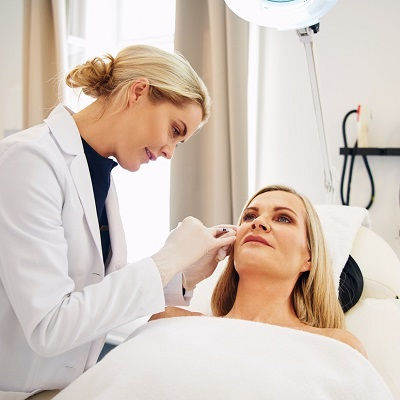Dermatologist Tips for Choosing the Right Sunscreen
- aliza khan
- May 17, 2025
- 4 min read
Selecting the right sunscreen is essential for effective protection against harmful ultraviolet (UV) rays. According to experts, including a trusted Dermatologist Muscat, proper sunscreen choice not only prevents sunburn but also reduces the risk of skin cancer and premature aging. With numerous options available, understanding how to pick the best sunscreen for your skin type and lifestyle can be overwhelming. This guide breaks down critical factors and expert advice to help you make an informed decision for lasting skin health.
When consulting a dermatologist Muscat, patients often express confusion about sunscreen labels, ingredients, and application techniques. Knowing what to look for in a sunscreen can make all the difference in safeguarding your skin against daily sun exposure. Let’s dive into the vital considerations and dermatologist-approved tips that ensure your sunscreen delivers optimal protection.
Why Sunscreen Is a Non-Negotiable Step in Skincare:
Daily sun protection is crucial regardless of your skin tone, weather, or season. UV rays can penetrate clouds and glass, causing damage even on cloudy days or indoors near windows. Sunscreens act as a barrier, blocking or absorbing UV radiation, thus preventing DNA damage that leads to skin cancer and visible aging signs such as wrinkles and dark spots.

Understanding Sunscreen Basics: SPF, Broad Spectrum, and PA Ratings:
What Does SPF Mean?
SPF stands for Sun Protection Factor and measures protection against UVB rays—the primary cause of sunburn. For example, SPF 30 blocks about 97% of UVB rays, while SPF 50 blocks 98%. Dermatologists emphasize that SPF ratings higher than 50 offer minimal additional benefits.
Broad Spectrum Protection:
A sunscreen labeled "broad spectrum" shields against both UVA and UVB rays. UVA rays penetrate deeper, contributing to skin aging and cancer risk, so broad-spectrum sunscreens are essential for complete protection.
PA Rating System:
Primarily used in Asian markets but gaining global attention, PA ratings indicate protection against UVA rays. PA+ offers some protection, while PA++++ indicates the highest level.
Types of Sunscreens: Chemical vs. Physical:
Chemical Sunscreens:
These contain organic compounds like oxybenzone and avobenzone, which absorb UV rays and convert them into heat. They are usually lightweight and less visible on the skin but may cause irritation for sensitive skin types.
Physical Sunscreens:
Also known as mineral sunscreens, they use zinc oxide or titanium dioxide to reflect UV rays. They are preferred for sensitive or acne-prone skin due to their gentle nature and immediate effectiveness upon application.
Key Dermatologist Tips for Choosing the Right Sunscreen:
Match Sunscreen to Your Skin Type:
Oily or Acne-Prone Skin: Look for oil-free, non-comedogenic sunscreens labeled “matte finish” or “gel-based.”
Dry Skin: Hydrating sunscreens with added moisturizers like hyaluronic acid or glycerin can help.
Sensitive Skin: Mineral sunscreens with fewer irritants are ideal.
Combination Skin: Lightweight formulations that balance hydration and oil control work best.
Choose Water-Resistant Formulas:
If you swim or sweat regularly, opt for water-resistant sunscreens. These maintain protection for up to 40 or 80 minutes in water but still require reapplication.
Avoid Harmful Ingredients:
Consult a dermatologist to avoid ingredients linked to allergies or hormone disruption, such as oxybenzone or parabens.
Consider Your Lifestyle and Activities:
For daily wear, lightweight lotions or creams with SPF 30-50 suffice. For prolonged outdoor activities, higher SPF and additional sun-protective clothing are recommended.
Application Tips from Dermatologists:
Use Enough Sunscreen:
Most people apply too little. A full face requires about a nickel-sized amount, and a shot glass amount for the entire body.
Reapply Frequently:
Sunscreen should be reapplied every two hours or immediately after swimming, sweating, or towel drying.
Don’t Forget Hard-to-Reach Areas:
Ears, back of neck, lips (with SPF lip balm), and hands often get missed but need protection.
Common Myths About Sunscreen Debunked:
Myth: Darker Skin Doesn’t Need Sunscreen:
While darker skin has more natural protection, it is not immune to sun damage or skin cancer.
Myth: Sunscreen Is Only Needed on Sunny Days:
UV rays penetrate clouds, so protection is necessary year-round.
Myth: One Application Is Enough for the Day:
Reapplication is vital, especially with outdoor exposure.
Innovations in Sunscreen Technology:
Advances include tinted sunscreens that protect against visible light, hybrid formulas combining chemical and physical blockers, and eco-friendly options that avoid reef-damaging ingredients.

How a Dermatologist Muscat Can Help You Choose:
Personalized advice from a skin expert ensures you select a sunscreen suited to your specific skin concerns, sensitivities, and lifestyle. Dermatologists can also recommend complementary skincare products that enhance sun protection benefits.
Protecting Children and Sensitive Skin:
Pediatric sunscreens designed without fragrances or harsh chemicals offer safe protection for young and delicate skin. Remember, children require more frequent reapplication due to their active nature.
Additional Sun Protection Strategies:
Sunscreen is one layer of defense. Combine it with protective clothing, wide-brimmed hats, sunglasses, and seeking shade during peak hours for comprehensive protection.
When to Seek Medical Advice for Sun Damage:
If you notice persistent redness, blistering, unusual spots, or changes in moles, consult a dermatologist promptly for evaluation and treatment.
Final Thoughts:
Choosing an effective sunscreen is not just about the label or SPF number. A dermatologist Muscat stresses the importance of understanding your skin’s unique needs, selecting broad-spectrum protection, and applying sunscreen correctly. Following these expert tips ensures your skin remains healthy, radiant, and safeguarded against harmful UV damage throughout the year.



Comments